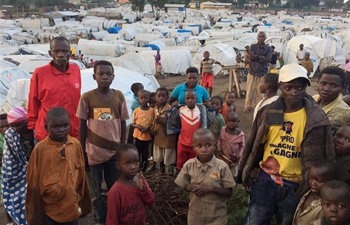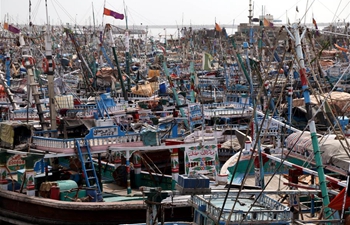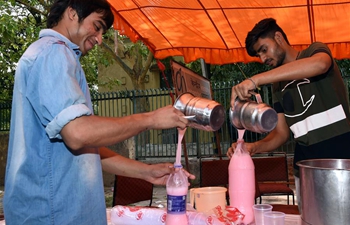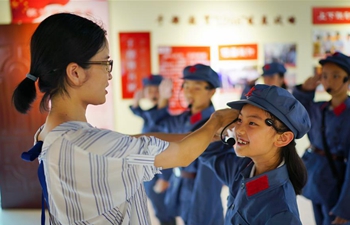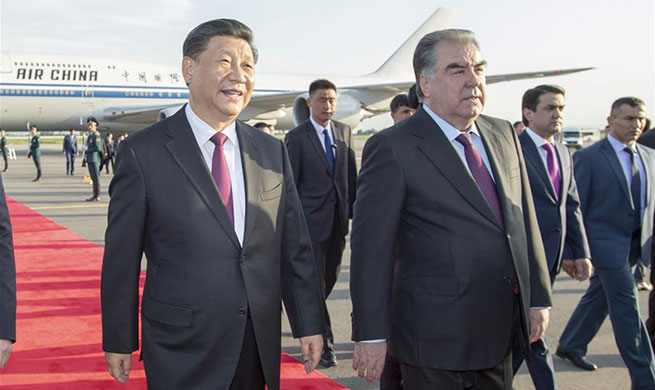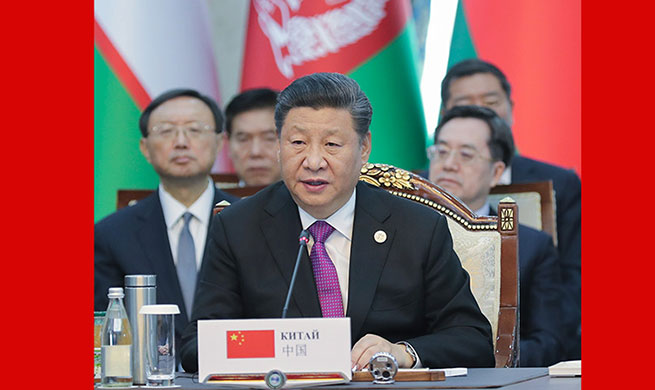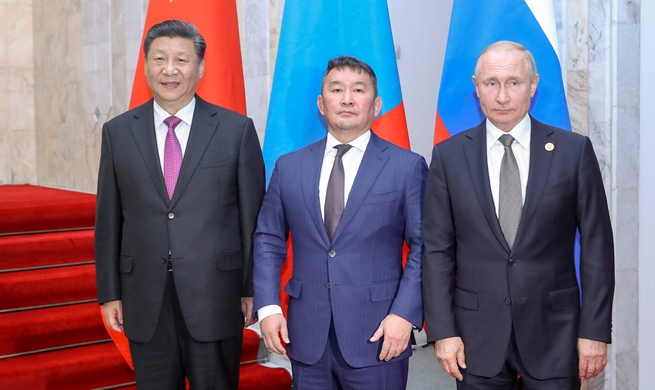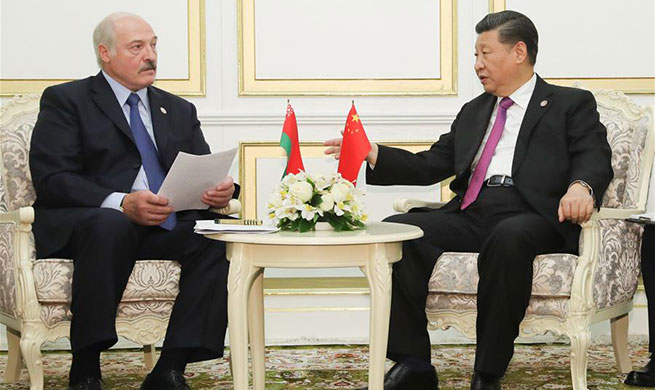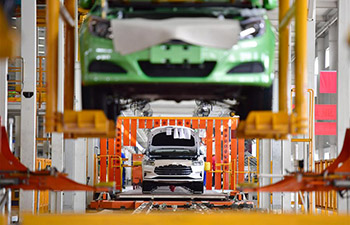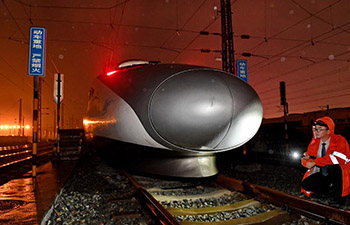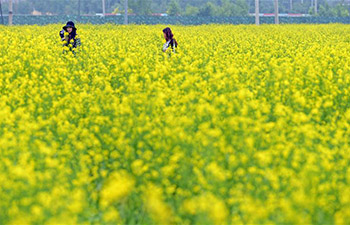by Chevige Gonzalez Marco
CARACAS, June 14 (Xinhua) -- Nearly two years into Venezuela's severe economic crisis, the government's key welfare program proves to be an essential safety net for the country's most vulnerable.
CLAP, which stands for Local Supply and Production Committees, delivers staple food items to many Venezuelan households, whose diets were undermined by rampant price gouging, shortages and inflation.
Launched by Venezuelan President Nicolas Maduro in April 2016, the initiative of CLAP ensures every family receives a basic box of rice, wheat, pasta, lentils, corn flour, cooking oil and black beans at a quite low price.
"If I didn't have CLAP, I don't know what would become of me," said Ramona Medina, 69, who lives in the Caciques de Vista Alegre residential complex in western Caracas.
The apartment buildings were built during the government of former president Hugo Chavez for numerous families previously living in shanty towns.
"I am thankful for this little box of food, which lets us save a lot of money," said Ramona, who also credited the work done by her neighbor Monica Reveron, a community leader.
According to Reveron, each building has a representative who coordinates the distribution of food boxes delivered by state-owned Venezuelan Food Producers and Distributors, a nationwide food supply network. The 480 families in the complex receive a delivery every 15 days.
"We save a lot because a kilo of rice costs between 8,000 and 9,000 bolivars, and the box costs 2,000 bolivars," she said.
In the current market situation, a kilo of rice would cost 1.45 U.S. dollars, while all the products in the box effectively cost about 0.32 cents.
"Honestly, if I go to the grocery store, I can't afford anything. I'm grateful" for the box, said Elena Romero, a resident at Caciques de Vista Alegre.
In April, during a public address, Maduro called for increased efforts to distribute the food boxes every 15 days to 6 million families covered by the program, according to official figures.
However, Venezuela recently accused Washington of trying to disrupt its imports of goods destined for the CLAP boxes.
"They have tried to block the food and complementary CLAP boxes we bring from abroad," Maduro said in late May.
The residents of Caciques de Vista Alegre were unanimous in their rejection of the U.S. sanctions and other measures that have made life harder for average Venezuelans.
Romero said the U.S. measures affect everyone, "from the youngest to the oldest."




